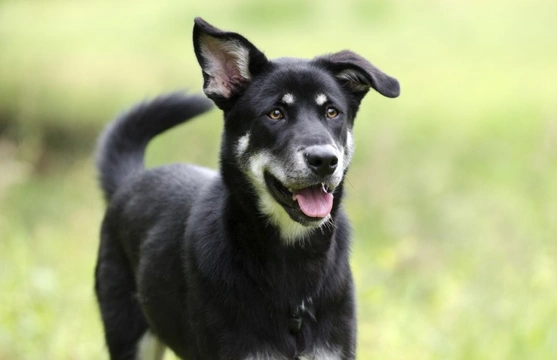
Aspiration Pneumonia in Dogs
Dogs can suffer from aspiration pneumonia when they inhale fluids and/or foreign bodies into their lungs. It can happen for all sorts of reasons which includes when a dog vomits or when they regurgitate gastric acid from the stomachs. With this said, dogs can develop aspiration pneumonia because they are suffering from some sort of neuromuscular health issue which causes them to have problems swallowing. There are other reasons why dogs might develop aspiration pneumonia which are covered in this article.
Reasons why a dog might develop aspiration pneumonia
As previously mentioned, dogs can develop the condition for a number of reasons which includes the following:
- Obstruction in their airways which negatively impacts a dog's lung function
- Abnormalities of the pharynx
- An enlarged lower esophagus
All too often when a dog inhales any sort of foreign matter into their lungs it contains harmful bacteria which then causes an infection complicating their condition even more.
Symptoms to watch out for
When a dog suffers from the condition there are obvious signs of there being something wrong. The symptoms most associated with the health condition are as follows:
- Difficulty breathing
- Problems swallowing
- Coughing
- High temperature/fever
- Nasal discharge
- Rapid breathing
- An increased heart rate
- Skin has a bluish tinge to it which is referred to as cyanosis
- Weakness
- A reluctance to exercise
- Vomiting
- Lack of appetite
- Regurgitation
- A change in character and mood
Diagnosing the problem
A vet would need to have a dog's full medical history and know how the onset of any symptoms first presented themselves. The vet would thoroughly examine a dog suspected of suffering from aspiration pneumonia and use specific diagnostic tools to confirm their diagnosis. The vet would palpitate a dog's abdomen and recommend carrying out the following tests which all helps when establishing whether a dog is suffering from the condition:
- Chest X-rays
- A complete blood count to establish if an infection is present
- A chemical blood profile
- Fluid from the lungs can be taken to confirm if bacteria is present which would also establish which kind of antibiotic to use as an effective treatment
If the vet finds that a dog is having serious trouble breathing, they could recommend putting them on oxygen until they are able to breath on their own again which may mean they would need to be hospitalised. The vet would also want to rule out certain conditions to see if a dog is suffering from some sort of esophagus dysfunction that could be causing the problem.
Treatment options
The vet might recommend removing any inhaled foreign matter in a dog's airways by suction taking into account that a dog might be experiencing trouble breathing so they would need to be given oxygen to stabilise their condition first. Dogs that are dehydrated or that have gone into shock might need to be put on a drip because it would not be possible to give them any fluids orally.
When it comes to recovery, dogs need to be kept quiet and away from other animals until they are well again. However, they should never be left on their own for very long and never lying on one side for more an a couple of hours as they would need to be moved as much as possible without distressing them too much. Once a dog is strong enough they can be given gentle exercise and it's always a good idea to stimulate them to cough which helps clear their airways.
Managing a dog with aspiration pneumonia
Aspiration pneumonia is a serious health issue that can prove life threatening and therefore dogs suffering with the condition are often kept in intensive care for as long as it takes to stabilise them. All too often there are complications which includes a paralysis of the esophagus which can make a dog's recovery longer. Once a dog is allowed home, they would need to be given specific medication and be taken to the vet who would need to see if they are recovering as they should and to make sure they are responding well to their medication.



